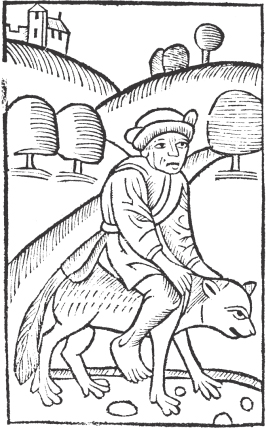
The word “witch” has become synonymous with “woman accused of working magic,” and the consensus tells us that the witch trials in Europe and Colonial America were simply a war against women (ie, “gendercide”). Most popular works on the subject ignore the men who were accused and executed for supposedly practicing witchcraft. Academic works that don't omit male witches usually explain them away, as if they were just a few special cases that don't really count.
Into this gap step Andrew Gow, an associate professor of history at the University of Alberta, and one of his grad students, Lara Apps. Their book Male Witches in Early Modern Europe scours the literature and finds that, of the 110,000 people tried for witchcraft and the 60,000 executed from 1450 to 1750, somewhere between 20 to 25 percent were men.

This is an average across Europe, the British Isles, and the American Colonies; the gender ratios vary widely from place to place. The lowest percentages of males were persecuted in the Basel region of Switzerland (5 percent) and in Hungary (10 percent). Places that hovered around the 50/50 mark were Finland (49 percent) and Burgundy (52 percent). Men were the clear majority of “witches” in Estonia (60 percent) and Norway (73 percent). During Iceland's witch craze, from 1625 to 1685, an amazing 110 out of 120 “witches” were men, for a percentage of 92. As for America, almost a third of those executed during the infamous Salem witch trials (six out of nineteen) were men.
Besides bringing these numbers to light, professor Gow and pupil Apps present serious challenges to the attempts to erase male witches from the picture. For example, some writers claim that the men were caught up in the hysteria solely because they were related to accused women. In this scenario, the men were only “secondary targets” (“collateral damage,” perhaps?). But in numerous instances men were persecuted by themselves. In other cases, a woman became a secondary target after her husband had been singled out as a witch.
Although women were the overall majority of victims, the “burning times” were pretty rough for men, too. 